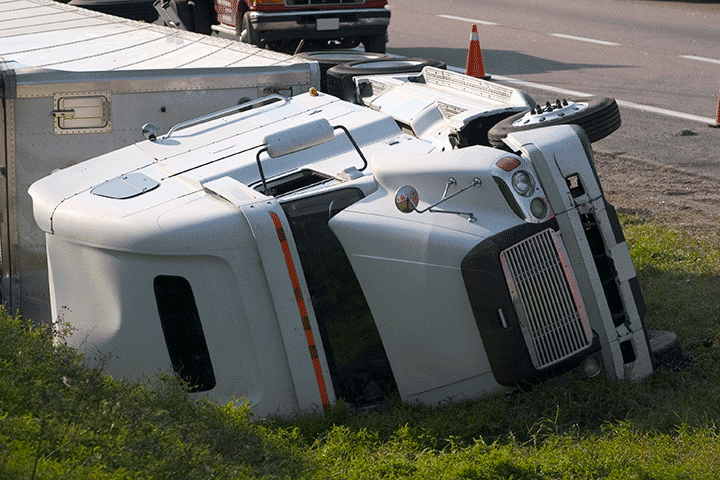FMCSA’s New Crash Preventability Determination Program

Contributed by Dave Osiecki, Scopelitis Transportation Consulting LLC
Since the inception of the Compliance, Safety, Accountability (CSA) program at the Federal Motor Carrier Safety Administration (FMCSA), the trucking industry has been rightly concerned that its business partners would improperly use CSA scores to make business decisions. The scores, the trucking industry argued, were not an accurate depiction of a company’s safety posture.
One example frequently highlighted was that CSA uses all crashes, regardless of fault or preventability, to calculate scores in the Crash Indicator Behavior Analysis and Safety Improvement Category (BASIC). This was especially concerning to many fleets considering the crash data tells us the vast majority of serious car-truck crashes are the result of errors made by the car driver.
For years, FMCSA rejected the industry’s argument that it needed to consider crash preventability in CSA, saying that all crashes, regardless of fault, are predictive of future crashes. FMCSA cited an internal study of CSA and its ability to identify carriers more likely to crash in the future as evidence that the system was working just fine.
FMCSA could not, however, disarm industry advocates who made a simple and compelling argument to Congress during truck safety hearings: A driver or motor carrier should not be penalized for a crash that it did not cause and could not have prevented. Under pressure from Congress, FMCSA announced in 2017 the creation of a pilot program, the Crash Preventability Demonstration Program.
Between 2017 and 2019, FMCSA accepted crash review requests from motor carriers. To be eligible, the crash had to fall into one of eight narrow scenarios, such as being struck in the rear or struck while legally parked. Overall, 8,188 eligible crashes were submitted and 7,564 were ruled not-preventable on the part of the truck driver, an astounding 92 percent success rate. FMCSA learned valuable lessons from the pilot demonstration project.
On May 6, 2020, the FMCSA announced a new and permanent “Crash Preventability Determination Program.” The new program consolidates and adds several scenarios. In all, FMCSA now accepts crashes that fall into 16 different categories, doubling the number of eligible scenarios accepted by the earlier pilot program.
Wisely, FMCSA also included a catch-all category for “rare and unusual” crashes; the category captures those “did that really just happen?” type crashes. Crashes deemed not-preventable will be noted on the carrier’s CSA profile and will NOT be used to calculate the Crash Indicator BASIC score. Also, drivers will finally receive the recognition they deserve when the preventability determinations are added to their PSP record, which many carriers rely on to help make hiring decisions.
The program started on May 6, 2020, and all eligible crashes that occurred on or after Aug. 1, 2019, are eligible for review. Trucking companies should review their crash records as soon as possible to determine which, if any, crashes are eligible for review and possible correction. Carriers must use FMCSA’s DataQs system to submit requests and must have copies of police accident reports (PAR) to support their claims.
Ultimately, this program will improve the accuracy of CSA and help FMCSA and its state enforcement partners better target scarce resources to investigate the least safe motor carriers.
It’s taken a long time for FMCSA to come to the conclusion: Crashes a driver could not have prevented are not indicative of a driver’s safety, or the safety of the driver’s employing carrier.
With any luck, as the program progresses, and our collective understanding of crash preventability and causation improves, new scenarios will be added and carrier accountability will continue to improve.
We’ve come a long way, but there’s still more road to travel.
Dave J. Osiecki is the President & CEO of Scopelitis Transportation Consulting (STC), a wholly owned subsidiary of the Scopelitis law firm. Mr. Osiecki personally develops and delivers the safety, technology, regulatory, and compliance-related consulting, training, and advisory service offerings of STC.
Contact Dave Osiecki or Sean Garney of Scopelitis Transportation Consulting at dosiecki@scopelitisconsulting.com or sgarney@scopelitisconsulting.com with questions.
Want to receive more articles like this?
Subscribe to the Great West blog and receive updates whenever a new blog is posted. Click the link below to get started today!
©Great West Casualty Company 2020. The material in this publication is the property of Great West Casualty Company unless otherwise noted and may not be reproduced without its written consent by any person other than a current insured of Great West Casualty Company for business purposes. Insured should attribute use as follows: “© Great West Casualty Company 2020. Used with permission by Great West Casualty Company.”
This material is intended to be a broad overview of the subject matter and is provided for informational purposes only. Great West Casualty Company does not provide legal advice to its insureds, nor does it advise insureds on employment-related issues. Therefore, the subject matter is not intended to serve as legal or employment advice for any issue(s) that may arise in the operations of its insureds. Legal advice should always be sought from the insured’s legal counsel. Great West Casualty Company shall have neither liability nor responsibility to any person or entity with respect to any loss, action, or inaction alleged to be caused directly or indirectly as a result of the information contained herein.




